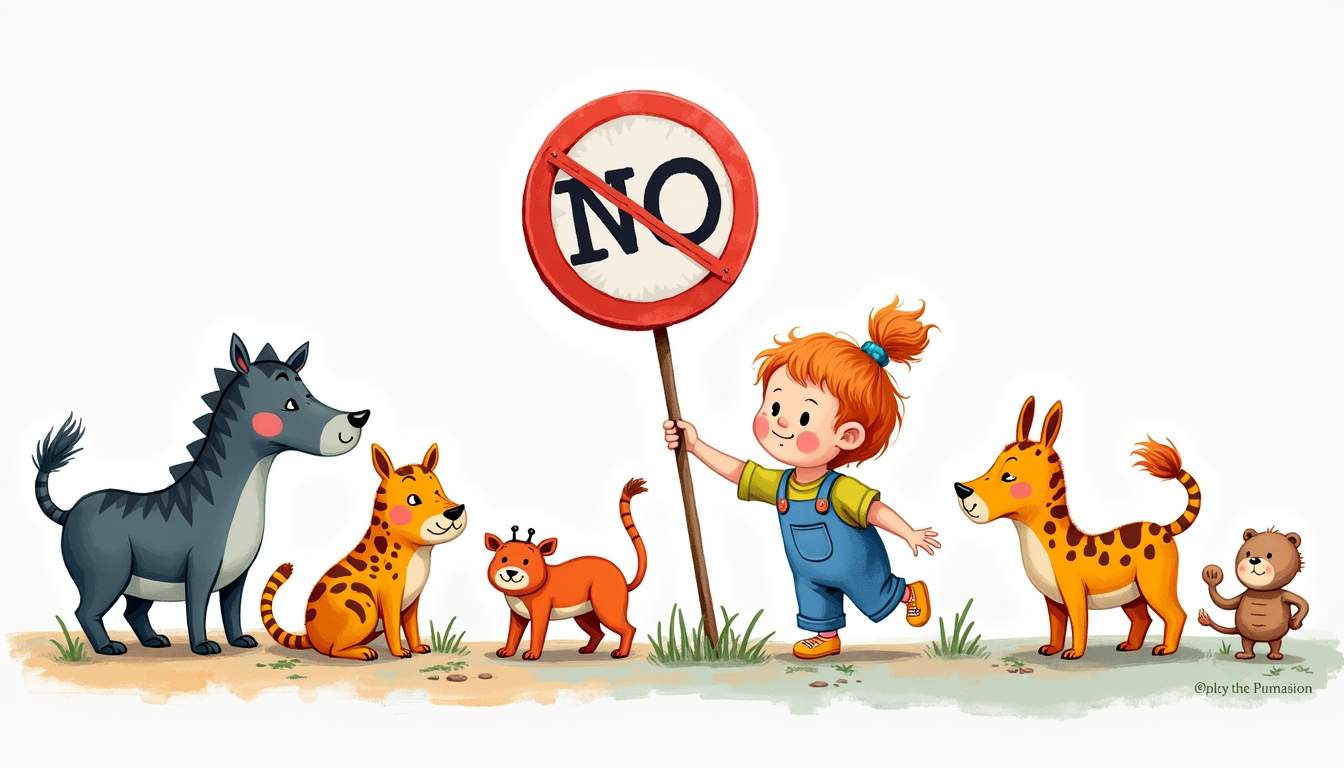As the seasons change and temperatures drop, parents often face the inevitable challenges of cold and flu season. For those with little ones in daycare, the stakes can feel even higher. Daycare environments, while beneficial for socialization and early learning, can also be breeding grounds for germs. Understanding how to keep your baby healthy during this time is crucial for both their well-being and your peace of mind.
Understanding the Risks of Daycare During Cold & Flu Season
Daycare centers are wonderful places for babies to learn and grow, but they can also expose children to a variety of illnesses. The close quarters and shared toys create an environment where viruses can easily spread. During cold and flu season, the risk of infection increases significantly.

Common colds and the flu are caused by viruses that can be transmitted through respiratory droplets, direct contact, or contaminated surfaces. Babies, with their still-developing immune systems, are particularly vulnerable. Understanding these risks can help parents take proactive measures to protect their little ones.
The Impact of Close Contact
In daycare settings, children are often in close proximity to one another. This close contact, while beneficial for social skills, also means that illnesses can spread rapidly. When one child comes down with a cold or flu, it’s not uncommon for several others to follow suit.
Parents should be aware that even seemingly healthy children can carry viruses and pass them along. Symptoms may not appear immediately, which can make it difficult to identify when a child is contagious. This highlights the importance of vigilance and preventive measures. Regular handwashing, sanitizing toys, and encouraging children to cover their mouths when coughing or sneezing can significantly reduce the spread of germs. Additionally, some daycare centers implement policies that require children to stay home if they exhibit any signs of illness, which can further protect the health of all children in attendance.
Common Symptoms to Watch For
Recognizing the symptoms of colds and the flu is essential for timely intervention. Common symptoms include runny or stuffy nose, cough, fever, and irritability. In babies, it can be particularly challenging to identify these signs, as they may not be able to communicate discomfort effectively.
Parents should keep an eye out for changes in behavior, such as increased fussiness or difficulty sleeping. If a baby shows signs of illness, it’s important to consult a healthcare provider for guidance on the best course of action. Monitoring hydration levels is also crucial, as babies can become dehydrated more quickly than older children. Offering fluids frequently, whether through breast milk, formula, or water, can help ensure they stay hydrated. Furthermore, maintaining a comfortable environment at home, with appropriate temperature and humidity levels, can aid in their recovery and comfort during these challenging times.
Preventive Measures to Keep Your Baby Healthy
Taking preventive measures can significantly reduce the risk of your baby contracting illnesses at daycare. Here are several strategies that parents can implement to help keep their little ones healthy during cold and flu season.

Hand Hygiene
One of the most effective ways to prevent the spread of germs is through proper hand hygiene. Teaching children to wash their hands frequently, especially before eating and after using the bathroom, can make a big difference. While babies may not be able to wash their hands independently, caregivers should ensure that they are regularly cleaned.
Using hand sanitizer can also be effective, particularly in situations where soap and water are not readily available. Parents should encourage daycare staff to prioritize hand hygiene and ensure that they are following best practices. Additionally, creating a fun routine around handwashing can help make it an enjoyable activity for children. Singing a song or using colorful soap can engage them and reinforce the importance of cleanliness.
Healthy Nutrition and Hydration
A well-balanced diet and proper hydration are vital for maintaining a strong immune system. Parents should aim to provide a variety of fruits, vegetables, whole grains, and proteins to support their baby’s health. Foods rich in vitamins and minerals, particularly vitamin C and zinc, can help bolster immunity.
Hydration is equally important, especially during illness. Ensuring that babies are drinking enough fluids can help keep their bodies functioning optimally. For babies who are still breastfeeding or formula-feeding, maintaining regular feeding schedules is essential. As babies grow and begin to eat solid foods, introducing hydrating foods like cucumbers, watermelon, and yogurt can also contribute to their overall fluid intake. Additionally, parents should be mindful of the signs of dehydration, such as dry lips or fewer wet diapers, and seek guidance from their pediatrician if they have concerns.
the signs of dehydration, such as dry lips or fewer wet diapers, and seek guidance from their pediatrician if they have concerns.
Would you like to check out one of the top-rated childcares in New Jersey? Schedule a tour with us!
Creating a Healthy Environment at Daycare
While parents can take steps at home, it’s equally important to ensure that daycare facilities are maintaining a healthy environment. Open communication with daycare providers can help parents understand the measures being taken to protect children from illnesses.

Cleaning and Sanitization Practices
Daycare centers should have rigorous cleaning and sanitization practices in place. This includes regular disinfecting of toys, surfaces, and common areas. Parents should inquire about the cleaning protocols to ensure that the daycare is prioritizing health and safety.
Additionally, it’s beneficial for daycare staff to be trained in recognizing symptoms of illness and knowing when to send children home. A proactive approach can help prevent the spread of germs within the facility.
Monitoring Illness Outbreaks
Being aware of illness outbreaks within the daycare can help parents take preventive measures. Many daycare centers will notify parents if there is a spike in illnesses, allowing families to be more vigilant. This information can also guide decisions about whether to keep a child home if they are showing any symptoms.
Parents should also consider forming a support network with other families at the daycare. Sharing information about illnesses and preventive measures can help everyone stay informed and better protect their children.
Recognizing When to Keep Your Baby Home
It’s essential for parents to know when to keep their baby home from daycare. While it can be difficult to miss work or disrupt routines, prioritizing a child’s health is paramount. Understanding the signs that indicate a baby should stay home can help prevent the spread of illness.
Signs of Illness
Fever is one of the most common indicators that a child should stay home. If a baby has a temperature of 100.4°F (38°C) or higher, it’s best to keep them at home until they have been fever-free for at least 24 hours without medication.
Other signs that may warrant staying home include persistent coughing, difficulty breathing, vomiting, or diarrhea. Parents should consult with a healthcare provider if they are unsure about whether their child is well enough to attend daycare.
Communicating with Daycare Providers
Open communication with daycare providers is crucial. Parents should inform the daycare if their child is sick, even if the symptoms seem mild. This transparency helps the daycare monitor potential outbreaks and protects other children.
Additionally, parents should feel comfortable discussing any concerns they may have about their child’s health and well-being at daycare. Building a trusting relationship with daycare staff can lead to better outcomes for everyone involved.
Would you like to check out one of the top-rated childcares in New Jersey? Schedule a tour with us!
Supporting Your Baby’s Recovery
If your baby does fall ill, providing the right support can help them recover more quickly. Here are some tips for caring for a sick baby at home.
Rest and Comfort
Rest is essential for recovery. Babies need plenty of sleep to help their bodies fight off infections. Creating a comfortable sleeping environment can aid in this process. Soft blankets, a quiet room, and a consistent sleep routine can help your baby feel secure and relaxed.
In addition to sleep, providing comfort through cuddling and gentle rocking can be soothing. Babies often find comfort in close physical contact, which can help them feel better during their recovery.
Monitoring Symptoms
Keeping a close eye on your baby’s symptoms is important. Parents should monitor for any changes or worsening of symptoms. If a baby shows signs of dehydration, such as fewer wet diapers or dry mouth, it’s crucial to seek medical attention.
Regular check-ins with a healthcare provider can also help ensure that the baby is recovering appropriately. If symptoms persist or worsen, professional guidance may be necessary.
Conclusion: Proactive Parenting During Cold & Flu Season
Cold and flu season can be a challenging time for parents, especially those with babies in daycare. However, by understanding the risks and implementing preventive measures, parents can help keep their little ones healthy. From promoting good hand hygiene to ensuring proper nutrition, every step counts.
Creating a healthy environment at daycare, recognizing when to keep a child home, and supporting recovery when illness strikes are all vital components of proactive parenting. Ultimately, staying informed and engaged with both your child and their daycare can make a significant difference in navigating cold and flu season successfully.











